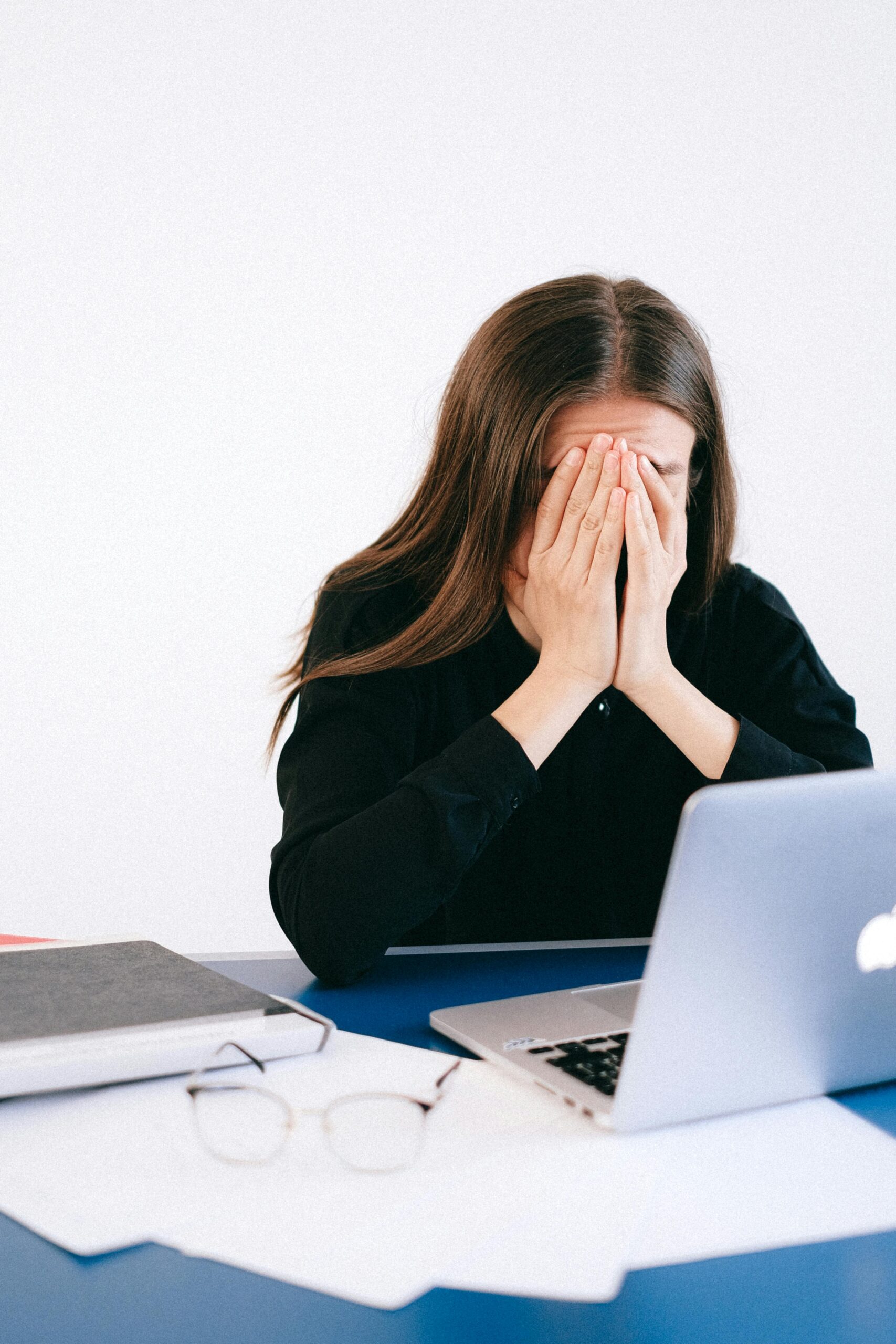In today’s fast-paced world, feeling overwhelmed by stress, anxiety, and constant mental chatter is common. Yet, calming your mind and soothing your nerves is vital for mental well-being. Fortunately, incorporating various techniques into your routine can help you achieve calmness and tranquility. Let’s explore some of the most effective techniques to calm your mind.
Breathing Exercises:
Deep Breathing
Simple yet powerful, deep breathing calms the mind and relaxes the body. Techniques like diaphragmatic breathing and box breathing are effective. They stimulate the body’s relaxation response, reducing stress and anxiety levels.
How to Box Breathe:
- Breathe out slowly, focusing on letting all your breath out.
- Inhale through your nose for four seconds.
- Hold the air in your lungs for four seconds.
- Exhale through your mouth for four seconds.
- Hold your lungs empty for four seconds.
Deep breathing exercises stimulate the body’s relaxation response, reducing stress and anxiety levels. Deep breathing is one of the most effective techniques to calm your mind.
Mindfulness Meditation
Rooted in ancient traditions, mindfulness meditation directs attention to the present moment, fostering awareness of thoughts and emotions. Regular practice reduces stress and anxiety, enhancing emotional regulation and peace.
How to Meditate:
- Find a quiet and comfortable space where you won’t be disturbed.
- Sit or lay down in a relaxed position, closing your eyes, and bringing your attention to your breath.
- Focus on the rise and fall of your chest or the feeling of air passing through your nostrils.
- Redirect your attention back to the breath whenever you become distracted.
Mindfulness meditation has been shown to reduce stress and anxiety when performed regularly. Mindfulness helps to break the cycle of rumination and worry that often perpetuates stress and anxiety. Individuals develop greater resilience to challenging situations, enhanced emotional regulation, and a deeper sense of peace in their daily lives.
Progressive Muscle Relaxation (PMR)
Tensing and relaxing muscle groups systematically, PMR promotes physical and mental relaxation. It reduces stress, tension, and fatigue, improving overall well-being and sleep quality.
- Find a quiet and comfortable space.
- Take a few deep breaths to center yourself.
- Start with your feet, tense the muscles in that area for about 5-10 seconds. After 5-10 seconds, release the tension.
- Relax completely for 15-20 seconds, noticing the difference in sensation between tension and relaxation.
- Continue this process, moving upward through different muscle groups in the body.
Progressive muscle relaxation reduces stress and anxiety by promoting physical relaxation, which in turn calms the mind and reduces the body’s physiological response to stress. Regular practice of PMR can improve sleep quality, reduce muscle tension and pain, and enhance overall feelings of calmness and emotional well-being. PMR is another one of the most effective techniques to calm your mind.
Tranquility Exercises:
Guided Imagery: Using imagination to create a peaceful mental landscape, guided imagery transports you to serene settings, providing temporary relief from stressors.
Yoga: Combining postures, breathwork, and mindfulness, yoga reduces stress hormones and increases feel-good neurotransmitters. Regular practice improves overall well-being and also reduces anxiety. Furthermore, practicing yoga regularly can help reduce stress hormones, such as cortisol, and increase levels of feel-good neurotransmitters, like serotonin and dopamine. According to a randomized control study published by the National Institute of Health, ninety individuals who reported being under moderate to high stress conducted 16 consecutive weeks of yoga in one group, while a second group only performed eight weeks of yoga starting after the first group. The study indicated that the 16-week group showed significant reductions in stress and psychological health measures compared to the second group. Subsequently, once the second group began their eight-week yoga regimen, they also experienced decreased anxiety and stress, as well as a general increase in well-being.
Journaling: A therapeutic tool for processing thoughts and emotions, journaling enhances self-awareness, reduces anxiety, and cultivates a positive mindset. Expressing yourself through writing can provide clarity and perspective, allowing you to gain insights into your mental state and identify triggers for anxiety. Writing down things you’re grateful for can cultivate a positive mindset and enhance feelings of well-being.
Connect with Nature: Spending time outdoors, especially in green spaces, reduces stress and anxiety levels. Additionally, immersing in nature grounds you, rejuvenates, and fosters peace. Spending time outdoors particularly green spaces may reduce stress and ultimately improve health according to an article by the National Institute of Health. Take a walk in the park, hike through the woods, or simply sit outside and soak up the natural surroundings. Pay attention to the sights, sounds, and sensations of the outdoors, allowing yourself to fully immerse in the present moment. Connecting with nature can help you feel grounded, rejuvenated, and more at peace with yourself and the world.
Essential Oils and Supplements to Relieve Stress:
Essential Oils
- Lavender Essential Oil: Lavender is one of the most popular essential oils for reducing stress and anxiety. It contains compounds like linalool and linalyl acetate, which have calming effects on the nervous system. Lavender oil can be inhaled or applied topically to promote relaxation and ease tension.
- Chamomile Essential Oil: Chamomile oil is another excellent option for reducing stress and anxiety. It contains apigenin, a compound that binds to certain receptors in the brain, promoting relaxation and reducing anxiety levels. Inhalation or topical application of chamomile oil can help calm the mind and induce feelings of tranquility.
- Bergamot Essential Oil: Bergamot oil has a citrusy aroma and is known for its mood-lifting properties. It contains compounds like limonene and linalool, which can help reduce stress and improve mood. Diffusing bergamot oil or using it in aromatherapy can help alleviate anxiety and promote a sense of well-being.
- CBD Oil: Cannabidiol (CBD) is a compound found in the cannabis plant known for its calming effects. CBD interacts with the endocannabinoid system in the body, which regulates stress response, mood, and emotions. Taking CBD oil orally or using it topically can help reduce anxiety and promote relaxation without the psychoactive effects associated with THC.
Supplements
- Ashwagandha: Ashwagandha is an adaptogenic herb used in traditional Ayurvedic medicine to help the body cope with stress. It contains compounds called withanolides, which have been shown to reduce cortisol levels and promote relaxation. Taking ashwagandha supplements can help alleviate symptoms of anxiety and improve overall well-being.
- Magnesium: Magnesium is a mineral that plays a crucial role in nerve function and relaxation. Low levels of magnesium increase anxiety and stress. Supplementing with magnesium can help regulate neurotransmitter function and promote relaxation. Magnesium supplements are available in various forms, including magnesium citrate and magnesium glycinate.
- L-Theanine: L-Theanine is an amino acid found in tea leaves, particularly green tea. Research has shown that it promotes relaxation and reduces stress by increasing levels of neurotransmitters like GABA and serotonin in the brain. Taking L-theanine supplements can help improve mood and reduce anxiety without causing drowsiness.
Conclusion:
Essential oils and supplements offer natural ways to manage stress and anxiety by promoting relaxation, calming the nervous system, and regulating neurotransmitter function. Incorporating these effective techniques to calm your mind into your routine cultivates balance and resilience. Experiment to find what works best for you, and remember, consistency is key. With patience and practice, you can calm your mind, soothe your nerves, and enhance well-being. It is essential to consult with a healthcare professional before starting any new supplement regimen. This is particularly important, especially if you have underlying health conditions or are taking medications.
Sources:
Maddux RE, Daukantaité D, Tellhed U. The effects of yoga on stress and psychological health among employees: an 8- and 16-week intervention study. Anxiety Stress Coping. 2018 Mar;31(2):121-134. doi: 10.1080/10615806.2017.1405261. Epub 2017 Nov 23. PMID: 29166771.
Kondo MC, Jacoby SF, South EC. Does spending time outdoors reduce stress? A review of real-time stress response to outdoor environments. Health Place. 2018 May;51:136-150. doi: 10.1016/j.healthplace.2018.03.001. Epub 2018 Mar 29. PMID: 29604546.




